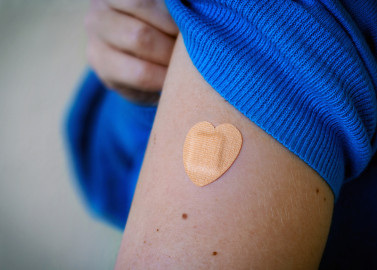Blog

Adult Immunization Awareness
When you were a kid, your parents probably took you for an annual checkup by a pediatrician, where you received the requisite vaccines required by your state in order to attend public school. You might have continued to do this throughout your school years and even throughout college. You likely received immunization from diphtheria, tetanus, polio, measles, chickenpox and other life-threatening diseases.
If you weren’t vaccinated as a child, it’s not too late. Many adult Americans forgo the annual checkup and routine (or single) immunizations, but this isn’t such a good idea, according to the Centers for Disease Control and Prevention (CDC). The following is a list of vaccines that adults should receive once or maintain throughout their lives.
Seasonal influenza (flu) (annually for all adults; often available at local pharmacies)
Tetanus, diphtheria and pertussis (starting with the Tdap vaccine, with a booster every 10 years following; women should receive the pertussis vaccine during each pregnancy)
Shingles (for adults 50 and older)
Pneumococcal disease (for adults 65 and over or smokers under 65)
Human papillomavirus (HPV) (for all adults; recommended for young women age 27 and under and young men age 22 and under who didn’t start or finish the series as adolescents)
Meningococcal disease (recommended for adults with increased risk of the disease who have not been vaccinated as teens)
Hepatitis A and hepatitis B (people over age 1 should be vaccinated for hepatitis A if they have a risk factor and for hepatitis B if they have a risk factor)
Chickenpox (for people over age 13 who have never had the vaccine or the disease)
Measles, mumps and rubella (for adults who did not receive the vaccine)
If you are concerned that you might be at a heightened risk for any of these diseases or if you believe you have symptoms, it’s important to contact your primary care physician right away. If you’re a healthy adult, keep up to date with your immunizations to prevent the spread of these critical diseases.
Back to blog